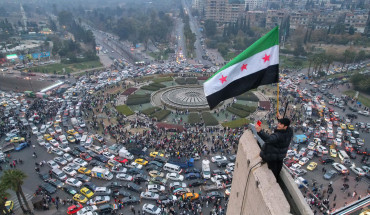Over the last decade, the dispute over the future status of the Western Sahara territory, which has set Morocco and the Algeria-backed pro-independence Polisario front in opposition, has entered a qualitatively new phase. This is due to attempts at finding a negotiated outcome instead of the long-delayed self-determination referendum. The idea of a political solution to break a twice deadlocked (1997 and 2000) UN self-determination referendum for the Western Sahara territory has steadily revived the prospect of autonomous status for the territory within Moroccan jurisdiction. As the viability of the implementation of the UN settlement plan became increasingly questionable, the relevance of a political solution to the dispute was again given renewed saliency. Yet, Morocco’s quick embrace of a negotiated settlement impelled Polisario to resent what it perceived as the hijacking of the old UN settlement plan, which it wanted to be fully implemented. The introduction of two proposals on autonomy and self-determination by the UN Personal Envoy, James Baker, eventually linked the autonomy option with a self-determination referendum, but failed to gain support from Morocco.
From 2001 to 2009, the complex and multi-centered diplomacy around the autonomy proposal, self-determination, and negotiated settlement would deserve a much closer assessment. In hindsight, what has the proposal achieved? The UN Settlement plan —which no direct or interested parties to the dispute support any longer — is still the basis of the mandate of the UN Mission in Western Sahara, a situation that has become increasingly untenable. Polisario and Algeria have endorsed the Baker Peace Plan while Morocco has issued its own autonomy blueprint. The UN Security Council has retracted its initial support for the Peace Plan but reiterated interest in a political solution that would provide for the self-determination of the people of Western Sahara.
To what extent has the idea and realization of autonomy for Western Sahara been a game changer? Are autonomy and a referendum on self-determination still acceptable and compatible? Is the core issue still about defining the electorate both for autonomy and the self-determination referendum? Have the talks around autonomy effectively shifted the diplomatic game from a defunct plan to a more promising platform without modifying the very terms of the stalemate? Has the UN played a transparent role? Have the talks on autonomy added complexity to negotiations with no single plan on the table, while at the same time highlighting parties’ flexibility in accepting devolution with or without self-determination referendum?
We have asked a panel of distinguished actors and observers of the Western Sahara scene — with first-hand knowledge of negotiations around autonomy and self-determination — to share their views and assessment of this critical juncture of the history of the Western Sahara dispute:
- Bernard Miyet, UN Under-Secretary-General for Peacekeeping operations from 1997 to 2000, recently retired as the Chairman of the Board of the French society of music authors, composers and publishers (SACEM).
- Carne Ross, Executive Director of Independent Diplomat, a non-profit group advising Polisario leadership on diplomatic strategy since 2006.
- Edward Gabriel, former U.S. Ambassador to Morocco from 1997 to 2001, and Chairman of the Moroccan-American Center, which promotes U.S.-Moroccan relations.
These papers will be published in succession, allowing the authors to respond to points raised by others and to raise new issues themselves. All will be collected here and serve as, we hope, a useful discussion about the conflict still awaiting resolution nearly 40 years later. In addition, we have presented a reference for the timeline of the conflict and the key provisions of the various settlement agreements.
The Middle East Institute (MEI) is an independent, non-partisan, non-for-profit, educational organization. It does not engage in advocacy and its scholars’ opinions are their own. MEI welcomes financial donations, but retains sole editorial control over its work and its publications reflect only the authors’ views. For a listing of MEI donors, please click here.













